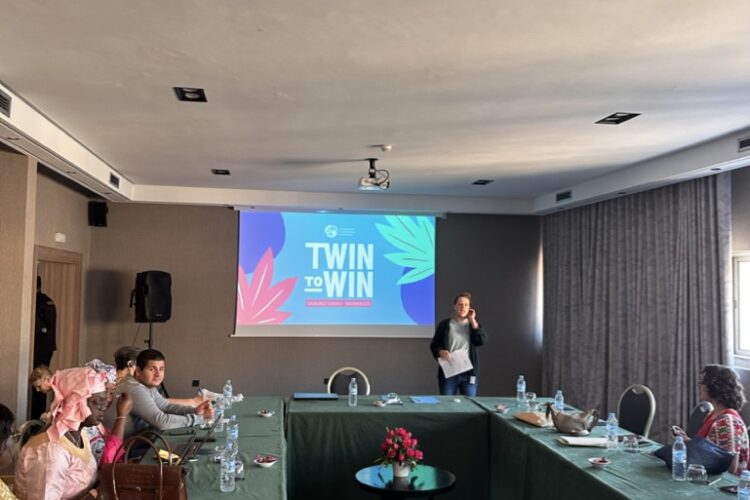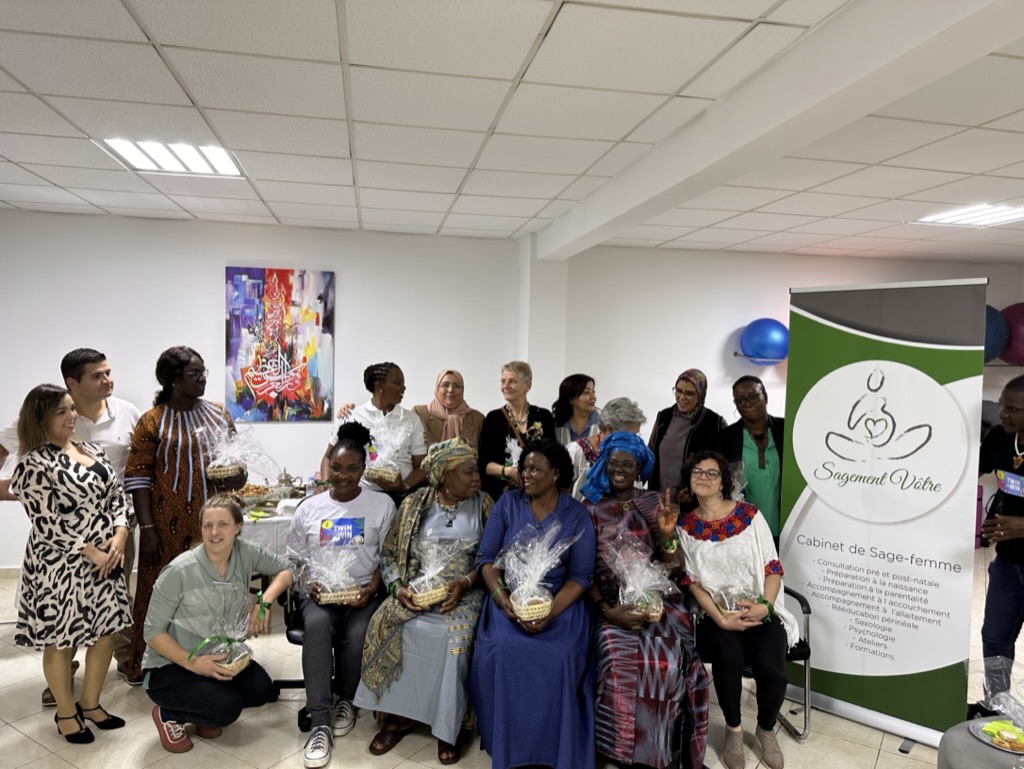Twinning Made Easy: ICM Launches Do-It-Yourself Guide

After successfully completing its two-year Twin to Win pilot project, ICM launches the Twinning for Midwives: A Do-It-Yourself Guide. The guide is designed to support Midwives’ Associations form a partnership through twinning.
A Do-It-Yourself Guide
The newly launched do-it-yourself guide provides detailed information about what twinning is, why it’s impactful, how to start a twinning project, and how to keep the momentum going. This is exemplified by real-life experience of midwives and midwives’ associations who have been involved in twinning and who share what twinning has meant for them, why they started twinning, and how they approached it. These are stories to inspire. The guide comes with a Twinning Kit that contains sample documents needed to start a twinning project. These are examples and can be adapted to better suit your context.
What is twinning?
Twinning is a cross-cultural, reciprocal process where two groups of people work together to achieve joint goals. The method has been recognised as an effective way to improve the quality of midwifery care in health systems by building the leadership capacity of midwives from both professional associations involved in the partnership. In addition, twinning helps to build stronger relationships between midwives and midwives’ associations. It enhances unity among midwives and their associations which is crucial in developing a shared sense of professional identity, support, and community of practice that spans beyond borders.
Twinning is one of the methods used by ICM to strengthen associations and several ICM member associations have twinned in the past.
ICM’s Twin to Win pilot project
ICM’s Twin to Win pilot project (2022-2024) brought together Midwives’ Associations from Burundi, Uganda, Costa Rica, Guatemala, Mali, and Senegal to learn from each other and to develop and implement joint and individual projects. The participants in the project attended exchanges, workshops, and established a community of practice that supported their project development.
Capacity building through shared learning
The Twin to Win participants highlighted the added value of crosse-learning and collaboration. They learned about the pivotal role of midwives in healthcare systems across different countries, including leadership within government bodies and involvement in national health data management. They also gained valuable insights from their twins on effective regulatory body management, as well as strategies for member engagement and time management. Participants found the strategies used by their twins to sustain their associations particularly helpful in addressing shared challenges.
The project exchanges emphasized the importance of unity, sisterhood, and solidarity, inspired by the enthusiasm and experiences of their twins. The collaborative approach reinforced the value of mutual respect and ongoing engagement.
“The project enabled us to understand that whatever the culture or country, there really isn’t too much difference in midwifery practice. The values remain the same, and so does the philosophy of midwifery. Exchanging and seeing each other also created a feeling of belonging, of being part of a team, and of realising that together we can learn from each other, which has created an indestructible relationship between us.” – Senegal
“Thanks to this project, the association has been tested. The board now has a logo, and we are achieving recognition at the ministerial level, something we learned from our counterparts in the twinning. We now have a phone and someone supporting us with accounting. Additionally, we had 11 members who were initially registered, we now have 104, thanks to the meetings with our colleagues.” – Costa Rica
Increased visibility of the midwives’ association
Twin to Win participants reported an increased visibility of their association in their respective countries resulting in growing membership, increased growth and impact in their relationships with stakeholders, and increased ability to apply for funding using tools and skills learned in workshops facilitated by ICM.
“We increased the number of new members by more than 130. We also increased our visibility, attracting many new donors who wanted to work with us. We are currently collaborating with a donor, and health authorities have sent us many invitations to participate in SRHR discussions and round table events. The video created as part of the project was circulated across Senegal through TV, radio, and other channels, which greatly helped us increase our visibility.” – Senegal
Policy wins
Participants highlighted how the Twin to Win project contributed to several policy wins in-country. A meeting with journalists in Senegal highlighted the need to change the law to create a regulatory body for midwives. This meeting was crucial for the implementation of the law on 30 December 2024.
In Guatemala, the midwives’ association successfully leveraged advocacy efforts to advance the integration of professional midwifery into the healthcare system. A key moment was an advocacy breakfast with high-ranking Ministry of Health officials, followed by several strategic meetings, including two with the Minister of Health. These engagements strengthened the midwives’ associations’ role in supporting pregnant women and positioned midwifery as an essential part of Guatemala’s maternal healthcare framework.
“The closing event of the Twin to Win Project marked a significant milestone in the path toward the integration of professional midwifery into Guatemala’s healthcare system. […] As part of the event, a press conference was held, generating a series of media reports that caught the attention of the Minister of Health. As a result, we were directly invited by the Minister to initiate negotiations.” – Guatemala
Twinning expert programme
ICM trained four twinning experts to ensure the sustainability of the Twin to Win project and to create capacity locally. The experts have been taught the art of twinning and how to transfer their knowledge to others who are interested in starting a twinning project. The training consisted of two workshops on the general principles of twinning. The four participants were then asked to set up a ‘mini-twinning’ project in their own country. They successfully presented their twinning projects at the African Regional Conference in Kigali, inspiring others to do twinning as well.
The twinning experts speak English, French and Spanish and may be able to support you on your twinning journey. For more information contact ICM via [email protected]
